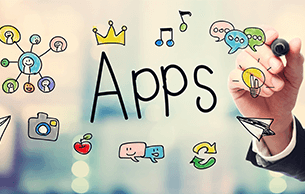Customers spend more money on apps that they believe can change their lives

Giving customers hope in apps and helping them achieve their life goals is more important than compulsion, according to new research from University of Cologne and Imperial College Business School.
Dr. Martin P. Fritze, Assistant Professor of Trade Fair Management and Marketing, and his co-authors identified six key features which motivate customers to engage with gamified apps including social interaction, sense of control, goals, progress tracking, rewards, and prompts. They found people were more likely to engage with these apps in the long term if it helped them reach certain goals rather than just a compulsion to use it.
According to Dr. Fritze,
“Hope means the customers give more value to the app, therefore engaging more, which motivates them to change their behaviours and achieve their long-term goals. The fact the app is helping them change and reach their goals leads to even greater engagement and in-app purchases.”
They also analysed how each of the game-like features affected customer engagement, hope, compulsion, and purchases. For health apps, the most important feature was rewards. For the dating service, the most important were sense of control, goals, and especially social interactions.
The research suggests that app designers should focus on the gamification principles when it comes to increasing customer engagement. Using these game features in apps will not only increase customer engagement, but also increase the in-app purchases customers make. However, managers should shift focus away from principles that lead to compulsion, such as progress tracking, rewards, and prompts, and focus more on enhancing customer hope.
The researchers conducted three different studies using over 2000 participants, specifically focussed on health/fitness apps and dating apps and what aspects made these apps so successful. The study was published in the International Journal of Research in Marketing.







